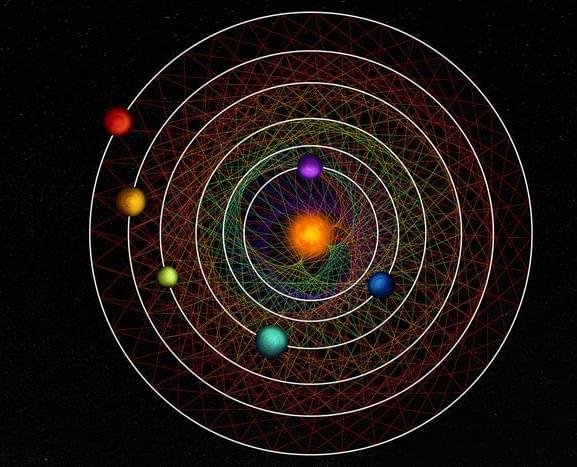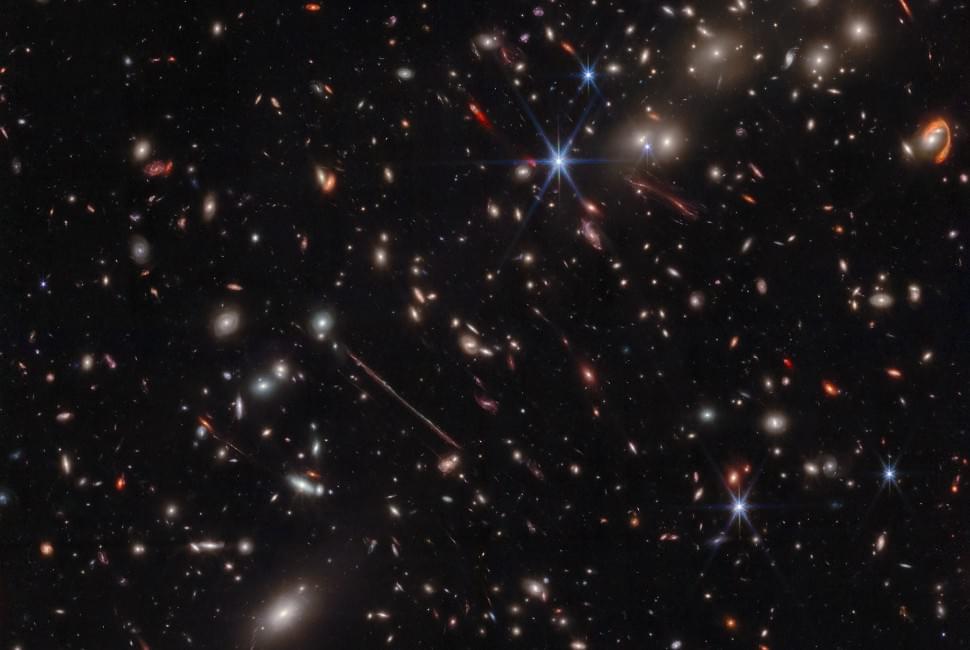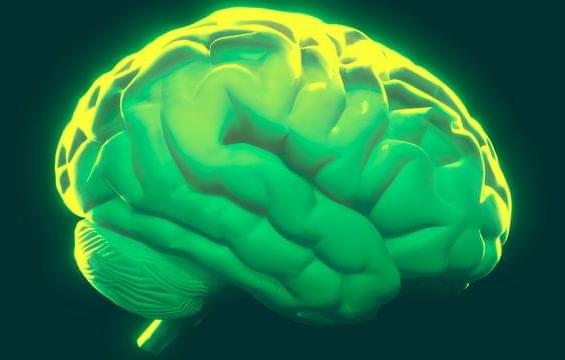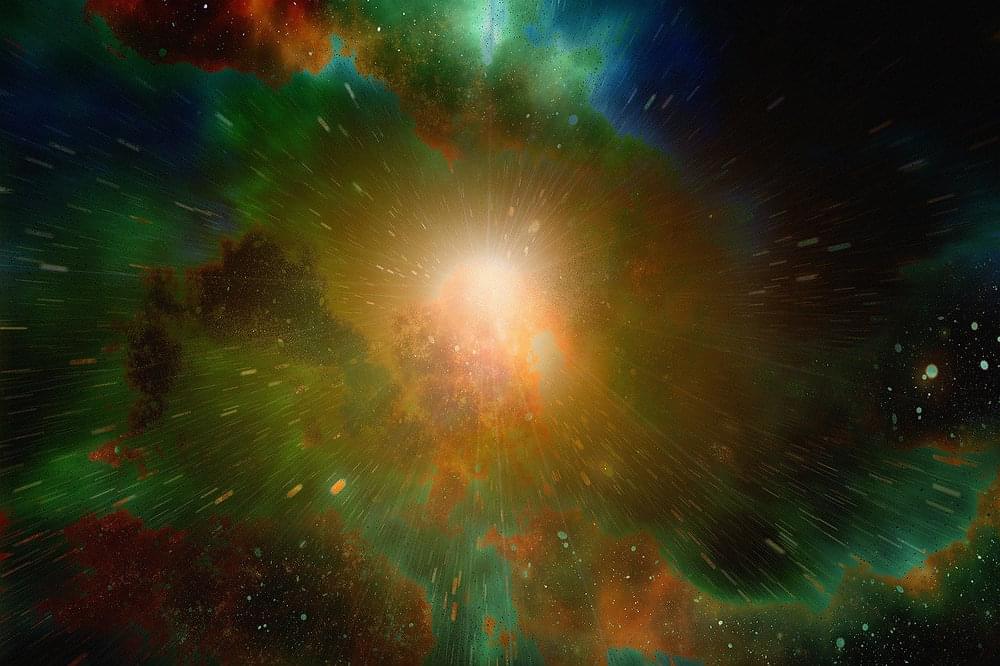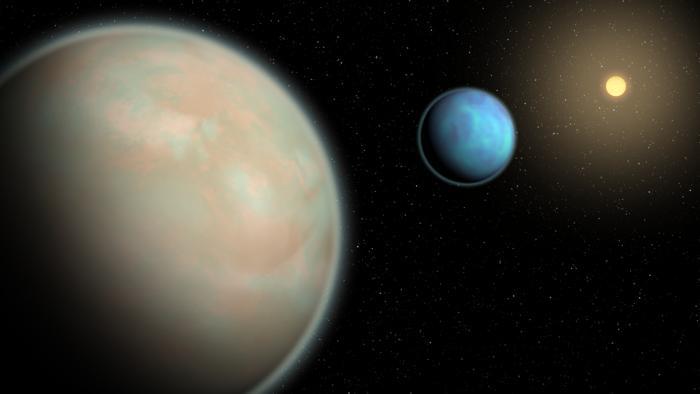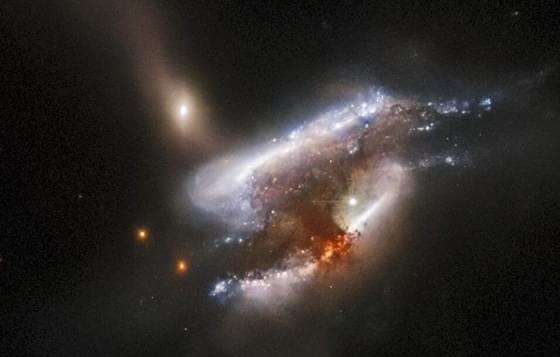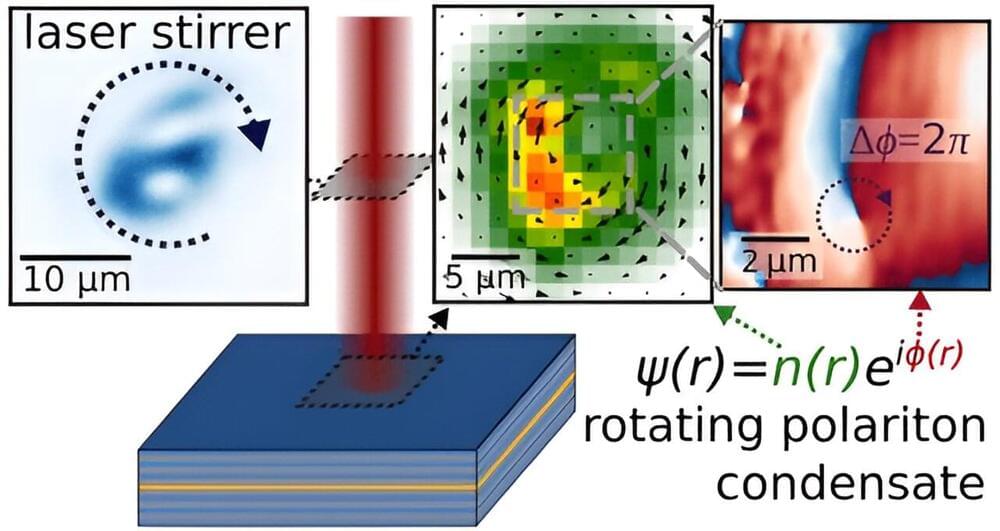Nov 30, 2023
Musical Planets: Unraveling the Orbital Waltz of HD110067
Posted by Laurence Tognetti, Labroots Inc. in categories: evolution, physics, space
A recent study published in Nature discusses the confirmation of an exoplanetary system based on data collected in 2020. The system, known as HD 110,067, possesses six planets whose orbits are in resonance with each other, or “in sync”, meaning which could offer profound insights into the formation and evolution of planetary systems throughout the cosmos. All the planets exhibit sizes between Earth and Neptune, also known as sub-Neptunes, and was conducted by an international team of researchers using data from NASA’s Transiting Exoplanet Survey Satellite (TESS) and the European Space Agency’s CHaracterising ExOPlanet Satellite (Cheops).
Artist illustration of the planets within the HD 110,067 system exhibiting orbital resonances with the colored lines depicting their resonances with each other. (Credit: CC BY-NC-SA, Thibaut Roger/NCCR PlanetS)
“This discovery is going to become a benchmark system to study how sub-Neptunes, the most common type of planets outside of the solar system, form, evolve, what are they made of, and if they possess the right conditions to support the existence of liquid water in their surfaces,” said Dr. Rafael Luque, who is a Postdoctoral Scholar in the Department of Astronomy and Astrophysics at the University of Chicago and lead author of the study.
